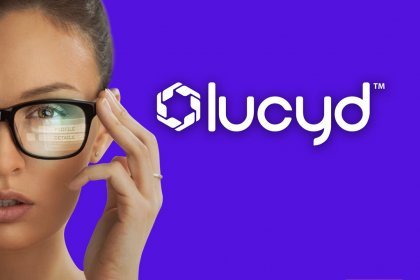Lucyd, the developer of smartglasses for augmented reality, has announced its partnership with American VR and AR gear provider Gravity Jack describing it as “breakthrough”.
Lucyd, the developer of smartglasses for augmented reality (AR), has recently announced that the company has formed a strategic partnership with American VR and AR gear provider Gravity Jack.
According to the deal between the two companies, which Lucyd describes as a “breakthrough,” Gravity Jack will develop apps for Lucyd – specifically for its smartglasses product. Both companies have issued statements regarding the partnership, stating their thoughts and lauding each other’s respective achievements. The cooperation is the next step for Lucid after it has teamed up with Credencys Solution a little earlier.
As was stated by Lucyd’s media Lead, Harrison Gross, the company is interested in seeing how Gravity Jack’s AR applications will improve upon the user experience. In order to do this, Lucyd will be leveraging the latter’s proprietary object recognition software, which is a distinct feature of Gravity Jack’s apps.
Lucyd is already famous for its two main products, which are ergonomic smartglasses and blockchain-based app store designed to support it. The central idea behind Lucyd’s smartglasses is to create a design, that would be more usable than those somewhat bulky and confusing, which is currently offered by other VR systems like the Oculus Rift. Lucyd is going to make it look and feel just like regular, but much more lightweight.
The total understanding of what Lucyd is trying to accomplish lays in understanding the difference between AR and VR. While VR systems replicate an environment that simulates a physical presence in places in the real world or an imagined world, allowing users to interact in it, AR systems represent an overlay of content on the real world, which is not anchored to or part of it, so that the real-world content and the computer-generated content are not able to respond to each other.
What Lucyd is trying to do is similar to what Google has attempted to do with its own AR device, Google Glasses which is quite different from what Facebook is trying to do with the Oculus Rift, for example.
The core difference between Google’s effort and Lucyd’s is that the latter is leveraging blockchain-tech to spur decentralized innovation by making it easier for anyone to create, share and experience AR content on their platform.
In order to raise the funds for further development of the product and its decentralized platform, Lucyd is holding a token sale event, selling 50 million Lucyd tokens (50,000,000 LCD). Tokens will be sold at a price of $0.25 per one.
Contributors to the crowd sale will achieve several benefits, including reservations for the beta testing of Lucyd lenses, whereby purchasers can exchange 5,000 LCD for a pair of early-release smartglasses when they become available early next year.
next